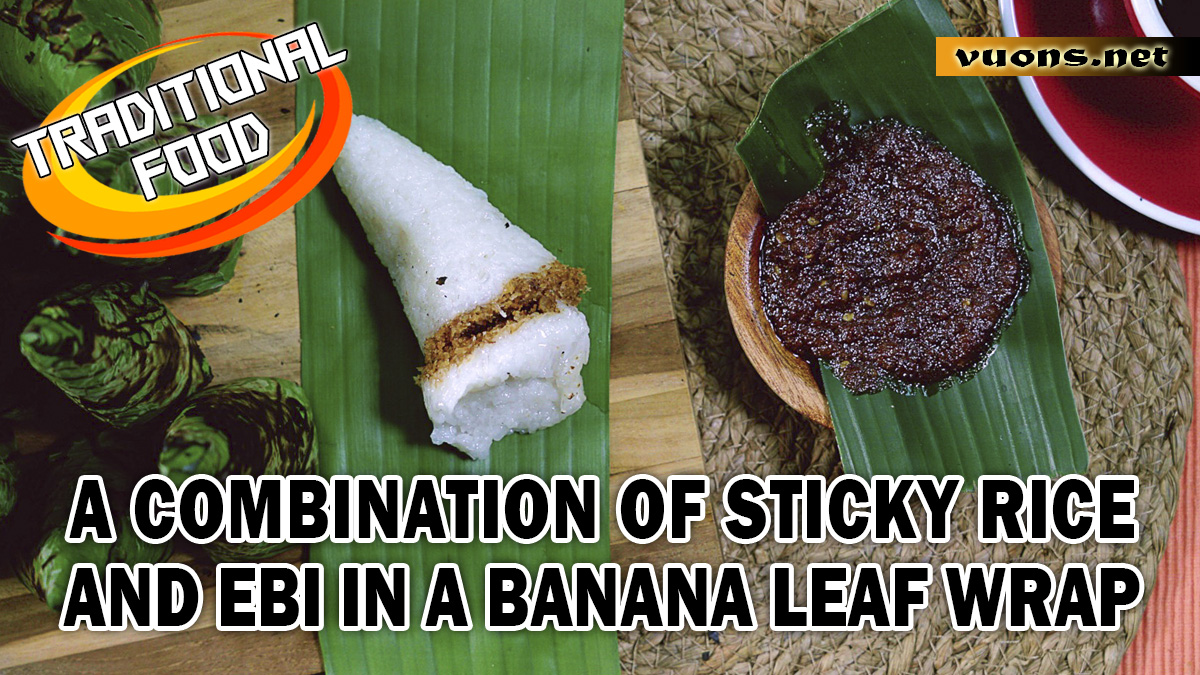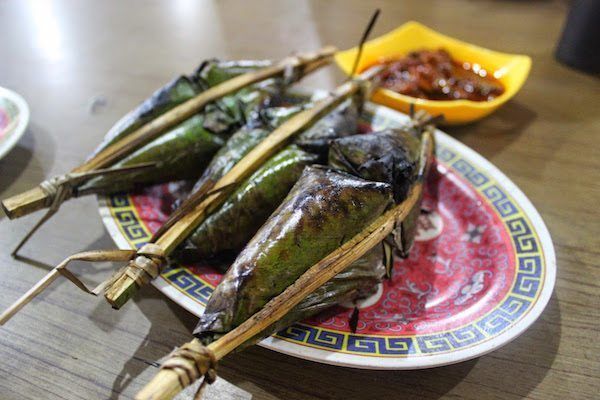Pengkang: Local Culinary that is Always Missed
The Long History of Pengkang as a Culinary Heritage of the Archipelago
Pengkang is a traditional culinary dish typical of West Kalimantan which has long been an important part of the archipelago’s culinary heritage. This Food is made from sticky rice filled with ebi shrimp, then wrapped in banana leaves and grilled over charcoal. Processing using this traditional method provides a distinctive taste and fragrant aroma from burnt banana leaves, making it a unique and appetizing food.
The history of pengkang begins with the Malay people in West Kalimantan who created this food as food for long journeys. Using sticky rice as the base ingredient makes the pengkang last longer, while the ebi shrimp filling provides a savory taste that is rich in protein. Over time, pengkang became a favorite snack of the local community and continues to be preserved today.
In modern times, pengkang remains one of the iconic foods of West Kalimantan, especially in the Singkawang and Pontianak areas. Even though it is sold on roadsides, traditional markets and restaurants, Pengkang still maintains its authentic way of making it. In fact, Pengkang is often served with chili sauce as a complement to add to its deliciousness.
As part of the culinary riches of the archipelago, pengkang reflects how traditional cuisine can survive and remain loved by various generations. With a simple combination of sticky rice and ebi, Pengkang has proven that traditional flavors can still compete with various modern culinary innovations. Pengkang’s long history as a culinary heritage of the archipelago is clear proof of how valuable culinary traditions are that are continuously maintained and passed down.
The distinctive aroma of banana leaves that makes Pengkang special
Pengkang, a traditional culinary dish from West Kalimantan, is known not only for its delicious taste, but also for its distinctive, appetizing aroma. One of the key elements that makes pengkang special is the banana leaves used as wrapping. The process of cooking pengkang by grilling it over charcoal causes the banana leaves to burn slowly and produces a fragrant aroma that permeates the food.
Banana leaves have natural properties that not only maintain the softness of the sticky rice inside, but also add a touch of unique natural aroma. When the pengkang is baked, the banana leaves act as a protective barrier that keeps the sticky rice and ebi moist and cooked evenly. The aroma produced during the roasting process provides a unique nuance of taste, distinguishing pengkang from other processed sticky rice.
Apart from its function in creating aroma, banana leaves also play an important role in visual and textural aspects. The green-brown banana leaf wrap after baking gives it a special appeal, adding a traditional and natural impression. Burning banana leaves creates a lightly burnt impression, adding a layer of soft texture to the outside.
With the use of simple ingredients such as sticky rice and ebi, the distinctive aroma of banana leaves provides an additional dimension that enriches the experience of eating pengkang. This is what makes pengkang not just food, but also a symbol of the beauty of traditional Indonesian culinary delights, where natural elements such as banana leaves play an important role in creating a special taste and aroma.
The perfect combination of sticky rice and ebi that is appetizing
Pengkang, one of West Kalimantan’s culinary specialties, is famous for its perfect combination of sticky rice and ebi which creates a savory and delicious taste. The combination of these two materials is the main element that makes Pengkang popular with many people. Sticky rice which has a sticky and soft texture is combined with savory ebi shrimp, producing a unique and satisfying harmony of taste.
The sticky rice used in pengkang is processed until it reaches the right level of doneness, thus creating a chewy texture that does not crumble easily. Meanwhile, ebi shrimp, which is prepared with simple spices, provides a strong salty and umami taste. The presence of ebi in the middle of sticky rice creates a different sensation in every bite, enriching the resulting taste.
Pengkang not only offers appetizing taste, but also nutritional balance. Sticky rice as a source of carbohydrates provides energy, while ebi, which is rich in protein, adds to the nutritional content of this traditional snack. This combination makes pengkang not only delicious, but also filling, making it an ideal choice as a snack or lunch.
The process of processing Pengkang which is baked in banana leaves also adds to its unique taste. The fragrant aroma of burning banana leaves further emphasizes the delicious combination of sticky rice and ebi contained in it. This makes pengkang a traditional snack that is not only delicious, but also rich in culinary cultural heritage.
The perfect combination of chewy sticky rice and savory ebi makes pengkang always eagerly awaited by culinary lovers, both in West Kalimantan and outside the region.
Pengkang and Complementary Chili Sauce: The Perfect Pair for Maximum Flavor
Pengkang, a traditional food typical of West Kalimantan, is famous for its savory taste which comes from a combination of sticky rice and ebi. However, there is another element that adds to the deliciousness of Pengkang, namely the chili sauce which is served as a complement. This chili sauce provides a new dimension of taste that makes the experience of eating pengkang even more special.
The sambal served with pengkang generally has a spicy and fresh taste, which goes well with the savory sticky rice and ebi. The spicy taste of the chili sauce is able to balance the deliciousness of the soft sticky rice and the salty ebi, creating a harmonious blend of flavors. Not only does it provide a different taste sensation, the chili sauce also adds freshness to every bite of the pengkang.
The basic ingredients for chili sauce for pengkang usually consist of chilies, shallots, garlic, and a little shrimp paste. This combination of spices is ground until smooth, creating a chili sauce with a rough texture that adds a strong spicy character. The spicy and savory taste of the chili sauce can provide the perfect finishing touch, making the pengkang even richer in taste.
Pengkang which is grilled until it produces a fragrant aroma from banana leaves will taste even more complete with spicy chili sauce. This taste experience makes pengkang not just a traditional snack, but also a food that has more appeal due to its complex combination of flavors.
With the addition of chili sauce as a complement, pengkang becomes a snack that is hard to resist. The combination of sticky rice, ebi and chili sauce creates a maximum taste sensation that can satisfy the taste buds of traditional culinary connoisseurs.




